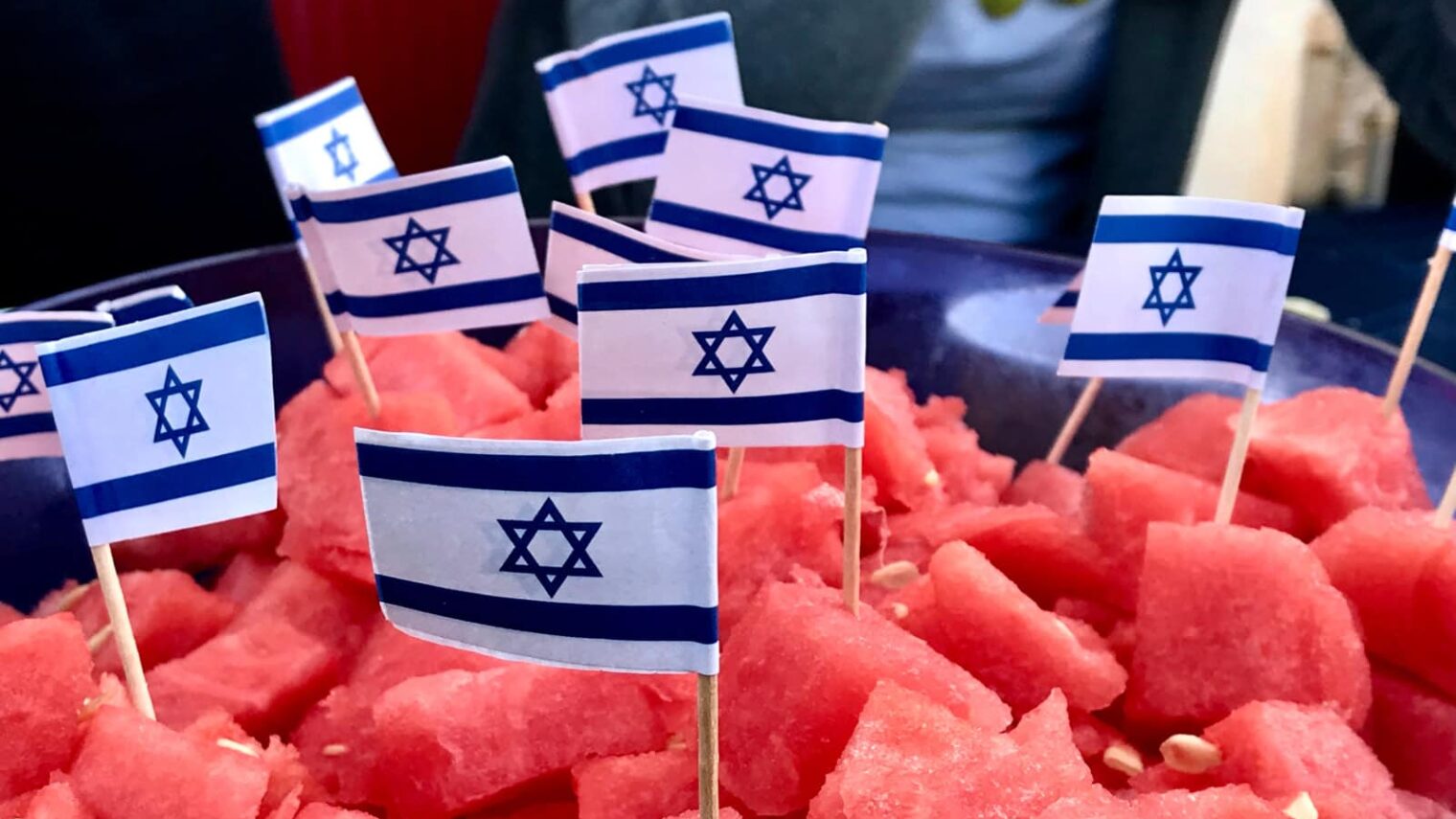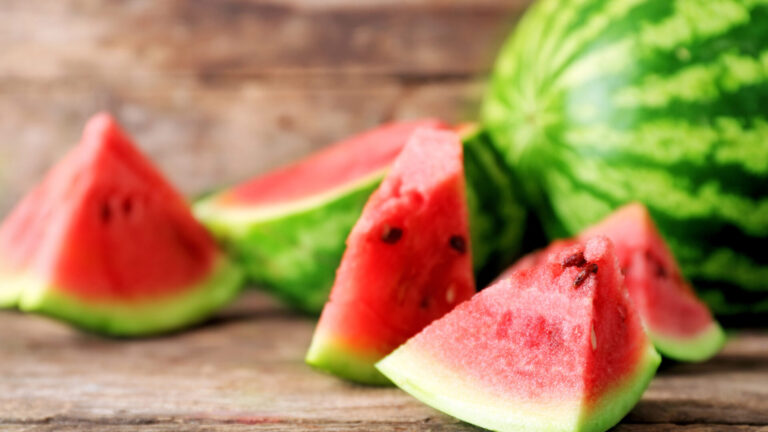Watermelon, avatiah in Hebrew, is one of the most popular fruits in Israel. Its juicy and sweet consistency makes for a perfect snack during hot Israeli summers.
Israelis consume around 119,000 tons (262 million pounds) of watermelon each year, which rounds up to 12 kilograms (26 pounds) of the fruit per person.
Israel has actually become a pioneer in watermelon cultivation, while the first mention of the fruit vis-a-vis the Jewish nation goes back to biblical times.
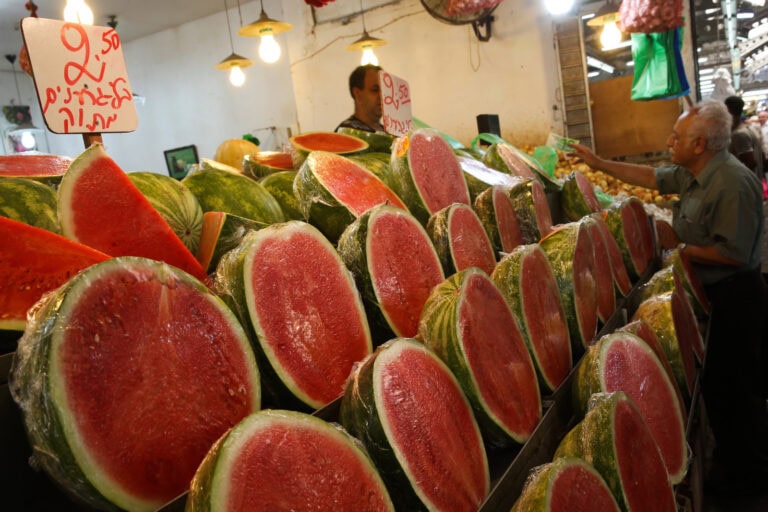
ISRAEL21c has compiled the ultimate list of seven things you didn’t know about watermelons in Israel:
1. Mentioned in the Bible
Watermelons began to be cultivated in Africa around 5,000 years ago. Paintings of the fruit are found in tombs of Egyptian pharaohs.
Ancient Jews who were enslaved by Egypt most likely ate watermelon. In the book of Numbers, the freed Israelites are described as bemoaning the absence of watermelon in their diet.
“In Egypt we used to eat all the fish we wanted, and it cost us nothing. Remember the cucumbers, the watermelons, the leeks, the onions, and the garlic we had?” (Numbers 11:5)
2. Ancient dessert
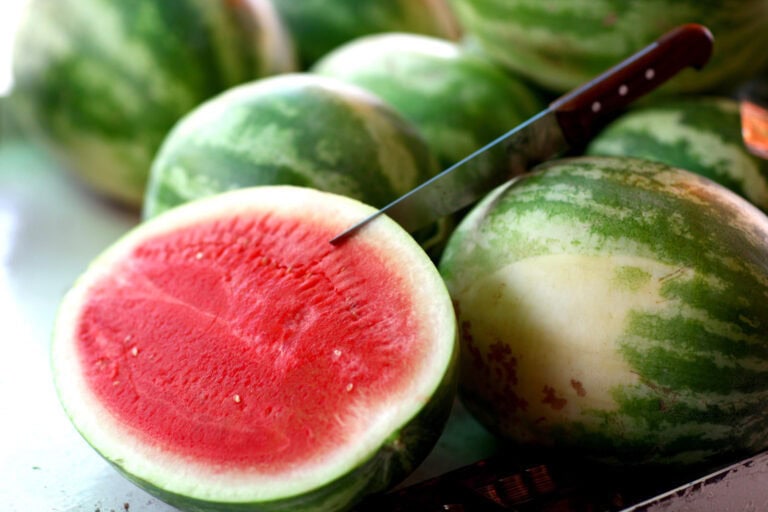
In the Middle East, including the Land of Israel, watermelon began to be cultivated around 3,000 years ago.
Scholars believe the fruit was consumed mostly as a dessert in ancient Israel. Remains of an ancient mosaic were discovered in northern Israel depicting a watermelon serving plate.
The Talmud, the central text of Rabbinic Judaism, mentions watermelon on several occasions as a sweet being consumed in the Land of Israel.
3. Drought-resistant watermelon
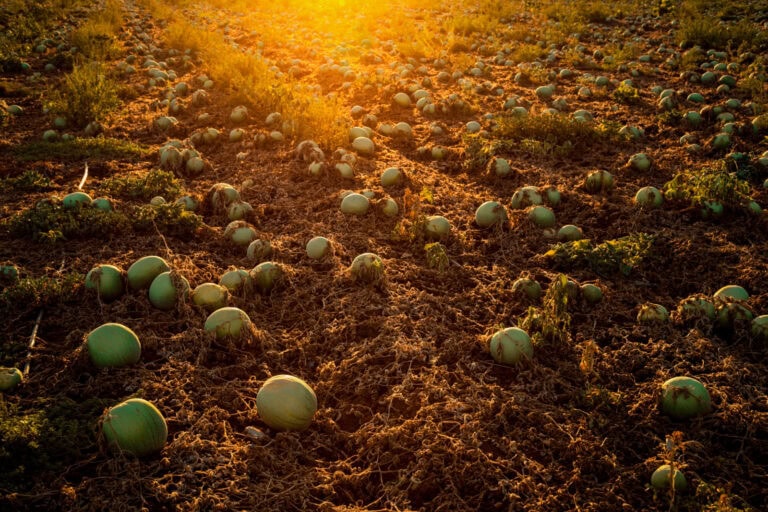
Despite being one of the most popular home-grown fruits in Israel, watermelons require a lot of water to grow. At least 500 liters (132 gallons) of water go into growing one watermelon.
In 2022, Israel-based Origene Seeds, a global pioneer of seedless watermelons, introduced the “Essence” and “Maxima” watermelon strains, which require 30 percent less water. These varieties are also 10% sweeter than regular watermelons.
The new breeds are expected to help Israel reduce the cost of watermelon cultivation, which currently stands at 28 million shekels ($7.6 million) annually.
As climate change is affecting more and more parts of the world, the new watermelon varieties may be a gamechanger for drought-hit areas.
4. Watermelon research leader
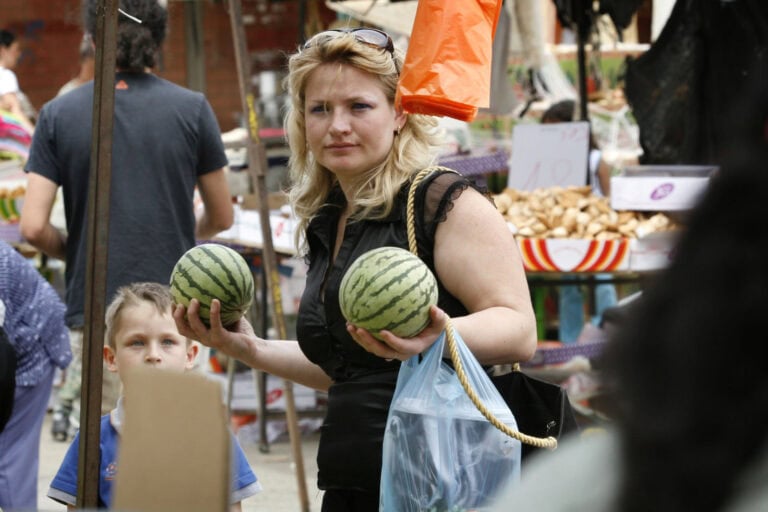
Israel’s national Volcani Center agricultural research organization, a world leader in its field, dedicates a large chunk of its research to making melons and watermelons more suitable for the Israeli market.
For instance, Volcani plant scientists developed small watermelons that are easier to carry up the stairs in apartment buildings, the typical Israeli dwelling place.
They also work on optimizing the growing process. Since Israel’s climate ranges from cool in the north to arid in the south, they develop strains to suit specific areas of the country.
5. An alternative fuel source?
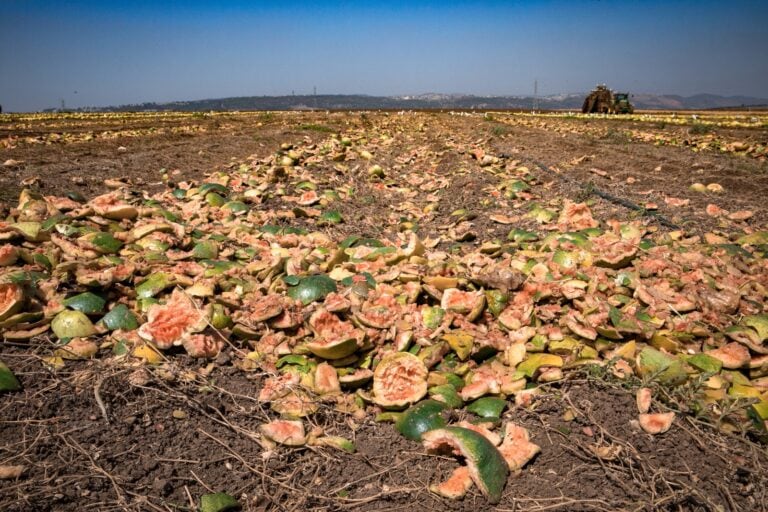
A recent Israeli study showed that residue from the Malali watermelon can serve as a basis for ethanol, an alternative biological fuel for vehicles.
The Malali variety of watermelon has a lot of seeds. It is often grown by farmers for the seeds alone, with the rest of the fruit going to waste due to a mediocre taste.
Annually, 56,000 tons of the Malali watermelon pulp is dumped, posing environmental threats due to bacteria and fungi that seep into the soil and contribute to the greenhouse gas effect.
By fermenting the watermelon waste, University of Haifa scientists discovered they can produce ethanol, and even small quantities of lycopene.
6. Watermelon seed harvest system
While we’re on the subject of watermelon seeds, meet Juran Technologies, an Israeli agricultural machinery manufacturer.
The company developed a one-of-a-kind system for harvesting watermelon seeds.
The system has a rake that picks the watermelons and arranges them in compact rows, A pick-up device lifts the fruits and sends them through a thresher, which slices them and extracts the seeds.
The Juran Watermelon Harvester & De-Seeder can be operated by two to five workers, replacing 50 to 70 workers needed to perform the same job manually.
7. Miniature watermelons
In 2021, Hazera Seeds, a multinational company with headquarters in Israel, unveiled its Ocelot watermelon breed that revolutionized the market.
A mini, “personal” watermelon with a tiger pattern reaches no more than 2 kg (5 pounds) when fully mature.
The Ocelot boasts a deep red color, as well as excellent taste and texture. It can be raised in a greenhouse or open field.
This variety is just enough for one or two people to enjoy as a refreshing dessert during a hot summer.




